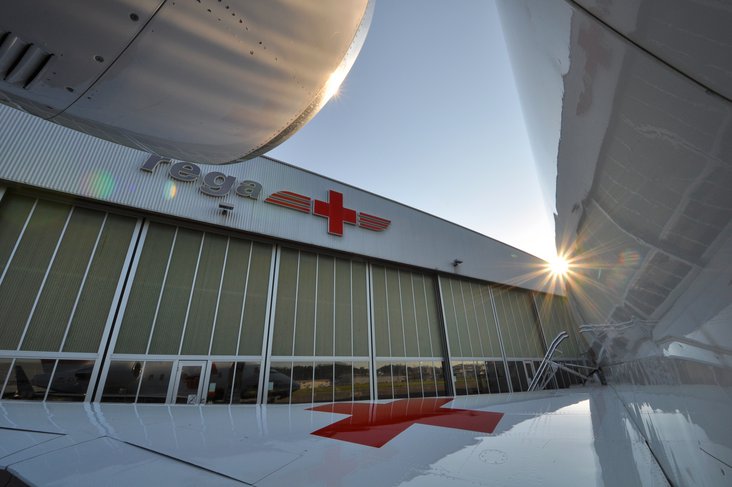"By renewing our fleet, we are ensuring that Rega can continue to provide reliable and professional assistance to patients all over the world throughout the next 15 years," explains Rega CEO, Ernst Kohler. For Rega, the reliability of its aircraft is of decisive importance. Consequently, the Challenger CL-604 jets, which were purchased in 2002 and have more than proved their worth in operation, will be replaced in the next few years with more modern aircraft. The new jets will make it possible to reduce the volume of maintenance work and at the same time retain the excellent level of availability of Rega's aircraft. The signing of this purchase agreement marks the end of an approximately two-year evaluation by a broadly based Rega task force. Rega estimates that the total cost of procuring the three aircraft will run to around CHF 130 million. This sum has already been earmarked in Rega's long-term financial planning, and the organisation's healthy financial position means that this project can be funded without outside capital.
Stable mission numbers and a growth in patronage figures
In the course of 2014, Rega organised 14,435 missions (+4.7 %), during which it transported 9,679 patients. This represents an average of 27 patients per day. Never before has the Rega Operations Centre coordinated as many missions as it did last year. This is above all attributable to the wet summer and the resulting high number of operations performed on behalf of mountain farmers (1,306, +25.1 %). These so-called "Contadino missions" are part of a programme to assist mountain farmers, whereby dead or injured cattle are airlifted out of inaccessible terrain and transported to the nearest site that can be reached by an overland vehicle. Rega subcontracts these operations to commercial helicopter firms. Generally speaking, the mission numbers reflect the weather conditions, as well as the leisure habits and travel activities of the Swiss population and foreign tourists in Switzerland.
Rega is extremely pleased that the number of patrons grew by 38,000 during 2014. This figure is roughly equivalent to the population of the town of Schaffhausen and corresponds to a net increase of 1.5 % compared to the previous year.
Rescues in bad weather
In order to come to the aid of even more people in distress, Rega has launched a series of measures that in future will enable its helicopters to also fly in fog and falling snow. These focus on the establishment and use of instrument flight paths that will allow helicopters to fly between hospitals even when visibility is extremely poor. The first part of this network is scheduled to go into operation in 2015. The proposed approach routes are currently being drawn up by the air navigation service, Skyguide, for subsequent approval by the Federal Office of Civil Aviation (FOCA).
To be able to operate under instrument flight rules, up-to-date meteorological data needs to be available around the clock. As a result, Rega has also launched a new major project to install up to 60 new weather stations and webcams in various locations all over Switzerland. In future, this data will be transmitted directly into the helicopter cockpit.
Transporting highly contagious patients by air
The outbreak of Ebola in West Africa in 2014 made it only too apparent that very few safe concepts existed for transporting highly contagious patients. So that Switzerland, too, has the capacity to provide such a service, Rega has developed a patient isolation unit (PIU) for airborne transport, together with a corresponding transport concept, in close collaboration with various partners. Thus Rega has succeeded in closing this gap in the provision of medical care and now has the means to safely transport people with potentially highly infectious diseases back home to Switzerland.

